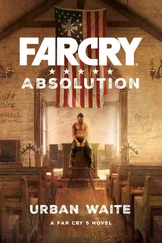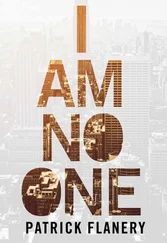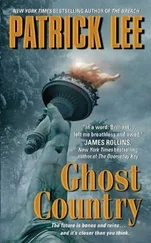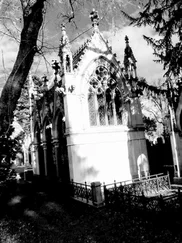In the months after the wedding, when they moved to his grandparents’ farm, into the long white house outside Stellenbosch, Nora learned the ways of her new tribe, the formalities of the language with all its cloying diminutives, the little pot, the little sister, the little mistress . In private, our mother asked my sister if her new husband’s family was treating her well. My sister did not answer at first, then said, too brightly, Yes, Mother, they treat me well .
When we were visiting her I upset an antique plate hand-painted with delicate blue flowers, breaking it on the dung floor that was polished with ox-blood and studded with peach pits, perhaps imagining how my sister’s mother-in-law would react.
Years passed. By the time I returned from Europe my brother-in-law was something important in the National Party. My own politics had been, as is so often said these days, ‘radicalized’ — chiefly by my time in England, and the people I met there, the books I was suddenly allowed to read without fear of discovery or sanction. On returning home, I met your father. We found each other through like-minded friends who arranged for us to meet, and, liking each other well enough, we decided to get married. I had your brother Mark, and as your father became more cautious, more concerned not to jeopardize his newly won place in the university, I became more radical, writing and publishing and attending meetings the wife of a professor should not have attended. It was enough to get me noticed by people on both sides, and at a meeting one night I let slip that my sister and her husband were going to be in Cape Town for a few nights. One of my associates asked, as casually as you please, if they would be staying with me. Don’t be ridiculous, I said. My sister’s husband would never accept my hospitality. They’re staying at some fancy guest house. Did I know the name? The name of the guest house? Of course I did — and let it trip from the end of my tongue.
I did not know it was supposed to be a secret, or that their arrangements were for my ears only, that my sister, in trusting me, was trying to extend a hand of friendship, even of reconciliation.
You are right to protest.
Without doubt I knew. I knew the delicacy of the information I held. I chose to forget. I have spent the rest of my life speculating why.
I imagine the moment of horror, the two of them caught by the intruder in the room of the guest house. Nora and Stephan were in bed together, sheets slick with hair oil, sticky with him, socks on the floor, cold and sharp, sour in the hot room. Woken by the sudden opening of the bedroom door, pushing her body upright in bed, damp with perspiration, seeing the figure outlined in the intruding light from the corridor, she must have wondered, Where are the guards? It must have seemed impossible that they should find themselves bargaining for their lives. Logically, Nora would have expected her husband to intervene to save her, but she must have known there had never been much evidence to suggest he would do anything to endanger himself, to put anyone’s interests above the instincts of his own self-preservation.
I have read the testimony. My sister’s assassin reported that she threatened to scream, to call the guards, to wake the entire guest house. Why, I wonder, at that most crucial hour, did she threaten but fail to act? She looked to her silent husband clutching the bedclothes in terror, and the smell of shit filled the room. (The police, the coroner, they confirmed this.) The intruder went first for my sister while her husband pleaded for his own life, on his knees in the bed. And then it happened. He moved, but not towards the assassin; he scrambled from his bed to the open window, trying to escape, and in the instant in which his legs planted themselves on the floor and his bare white back turned against his wife, the gun moved from her eye and fired into her husband with a soft pffft . She did not scream, or move, but looked at the assassin, who was, the man said, surprised by her silence.
When I saw their bodies the following morning I thought, I have done this. I have made this happen . I delivered the assassin to my sister’s door. I was not shocked by their deaths or the violence done to their bodies. I knew what bullets fired at close range could do to living tissue; I had done it myself, to my cousin’s horse. The only thing that shocked me was my own capacity to give away the very information that led to my sister’s death and to feel, in the aftermath, no remorse. They were, I told myself at the time, on the wrong side of history. About that, at least, I was right. About my own role, I can no longer be sure.
You see, Laura, how I played my own part — not as brave as you, but as wilful and headstrong, anxious to make a difference, or at least to appear useful to people more involved than I. Was I callous? Were we both?
In your last letter to me you write:
You know that I don’t ask for absolution, since that’s something you don’t believe in and therefore can’t give, or won’t give. I only offer this document as my version of the truth, a truth among many. Bernard’s truth would be different, but he can’t speak. Sam’s truth would be different still, and he may yet speak. If you refuse to absolve me, will you also refuse to judge me, or does judgement belong to a different order of ethics?
Come back. Come back that I may say it all to your face, that I may rethink my ethics, beg for absolution from you, prostrate myself in the name of reconciliation and love. You are all that I love now. I want only you.
*
As the earth spun you out of the eye of the sun, Lionel directed you to a point he recognized in a folded shadow of the Nuweveld Mountains. The clinic was a long low building in a tiny settlement of whitewashed plaster houses surrounded by a grove of acacia. Lights were on inside and a radio played. Timothy knocked at the largest of the houses, and his mother opened the door. She was a much older woman than you were expecting, short, in a neat smock dress. She kissed her son on both cheeks, then turned to Lionel with the same greeting.
‘Mother,’ he said, ‘this is Lamia and Sam. They gave us a ride.’
‘And they’ve come all this way with you? Shame! Are you sick, my dear?’
Inside, the house was bright and incongruously modern. Timothy’s mother, Gloria, poured you tea and said that you could sleep in the clinic. ‘There are no patients now, and plenty of beds. You’re welcome here for as long as you need.’
‘Perhaps a night. Just to rest. I can pay,’ you offered.
‘That isn’t necessary. You’ve given the boys a ride. That’s payment enough. Won’t you have another slice of malva pudding? It’s always nicer the next day, I find.’
‘We won’t stay long. I’m taking Sam to Beaufort West tomorrow. To his aunt.’
‘Of course,’ Gloria said, as if Beaufort West were a town peopled solely by aunts awaiting the delivery of prodigal nephews.
Like Gloria’s house, the clinic’s rustic façade masked an up-to-the-minute interior equipped with consulting and waiting rooms, an operating theatre, and a dormitory with sixteen single beds. Gloria and Timothy helped you make up two of the beds, showed you the toilets and showers, the kitchen with facilities to make tea and coffee, and invited you to return to Gloria’s house for breakfast in the morning. Left alone, you put Sam to bed and looked at him square in the eyes.
‘Perhaps we should have a talk,’ you said. ‘Do you know where your aunt lives in Beaufort West?’
‘If I saw it. I don’t know the name of the street, but I’ve been there before. I know the way.’
‘And you’re sure she’s still living there?’
‘I think so.’
Читать дальше












